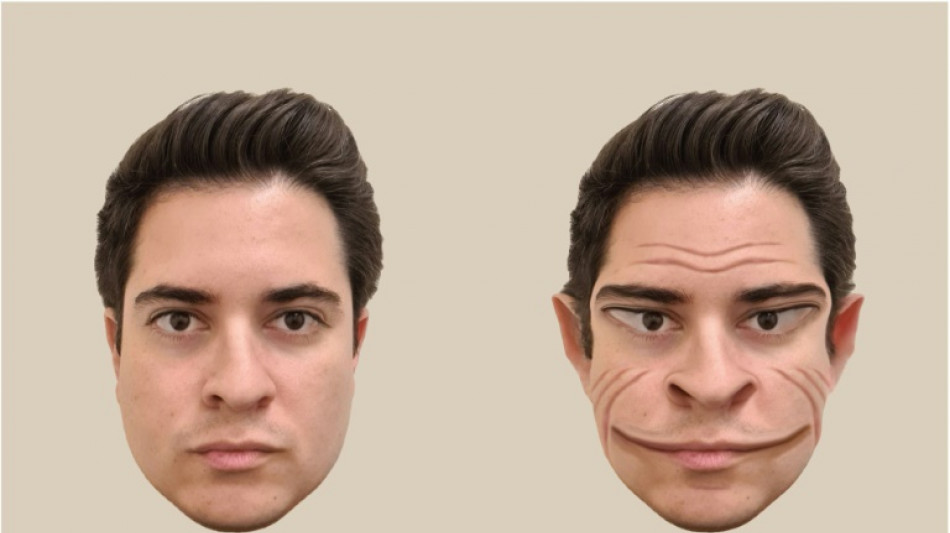

'I woke up in a demon world': How condition makes faces look distorted
When Victor Sharrah woke up one morning he was shocked to see that his housemate suddenly had pointed ears, gigantic eyes and a slashed mouth that stretched to the edges of his face.
Trying to remain calm, Sharrah took his dog for a walk, only to be met by people on the street who had similarly strange, twisted faces.
"My first thought was that I woke up in a demon world," Sharrah told AFP in a phone call from his home in Clarksville, Tennessee.
"I really started freaking out," the 58-year-old chef said. He considered getting himself "committed to the psych ward".
But Sharrah had not "totally lost his mind", as he feared.
He suffers from an extremely rare visual condition called prosopometamorphopsia -- or PMO for short.
For people with this condition, faces appear distorted in a variety of ways. While Sharrah sees demons, some see elves, PMO researcher Antonio Mello told AFP.
For some patients, one half of a face droops below the other. Others see purple or green faces, or ones constantly in motion.
Sometimes the condition only lasts a few days. But more than three years after waking to that scary first morning in November 2020, Sharrah still sees "demons".
- 'Traumatic' -
One aspect of Sharrah's condition makes him unique.
Unlike other people with PMO, when he sees faces on flat screens they appear normal.
This allowed Mello and other researchers at Dartmouth College in the US to create the first "photo-realistic" images representing how people with PMO see faces, they said in research published in The Lancet on Friday.
To create the images, the researchers had Sharrah compare photos of Mello and another person diplayed on a computer screen with the distortions he could see on their real-life faces.
For other PMO patients, the faces on the photos would have also appeared distorted, making such a comparison difficult.
Sharrah said that life with PMO is "far more traumatic than the pictures can convey".
"What people don't understand when they see those pictures is that in real life that face is moving -- gesturing and talking."
The exact cause of prosopometamorphopsia remains unknown.
Jason Barton, a neurologist at the University of British Columbia not involved in the new study, said that PMO is a "symptom, not a disorder," so could have multiple causes.
In most cases Barton has researched, "something happened in the brain that correlated with the onset of this abnormal experience", he told AFP.
Sharrah does have a lesion in his brain from an injury he suffered while working as a long-haul trucker in 2007.
But Mello said he did not believe this was related to PMO, because MRI scans showed the lesion is on Sharrah's hippocampus, a part of the brain "not associated with the face processing network".
Only around 75 cases of PMO have been previously reported in scientific literature.
But Mello said that more than 70 patients have contacted his lab over the last three years alone.
The terrifying nature of the condition mean it has often been misdiagnosed as schizophrenia or psychosis, he added.
- Adapting to demon world -
Sharrah only learned about PMO after posting about his experience on an online support group for people with bipolar disorder.
It was a huge relief.
"It meant I wasn't psychotic, you know?" he said.
Sharrah, who has perfect vision, had glasses custom made with a green tint that decreases the extremity of the distortions. Red makes them "more intense," he said.
As well as colour, depth perception seems to play a role. Though Sharrah does not see face distortions on flat screens, they started to appear when the researchers had him wear a virtual reality headset, Mello said.
Sharrah said he has largely adapted to his strange new world, and no longer wears his green glasses.
"It's been three years, I've kind of gotten used to it," he said.
But in crowded places such as Walmart, the army of demons around him can still be "overwhelming", he added.
Because PMO patients know what they are seeing is not real, many face a difficult decision. Is it worth telling people how grotesque they look, at the risk of sounding crazy?
Some choose silence. Mello spoke of a man who has never told his wife of many years that her face now appears distorted to him.
Sharrah said he shared his experience so that other people with PMO could avoid getting "institutionalised for psychosis".
"So they know what's going on -- and don't experience the trauma that I went through."
D.Johannsen--MP




